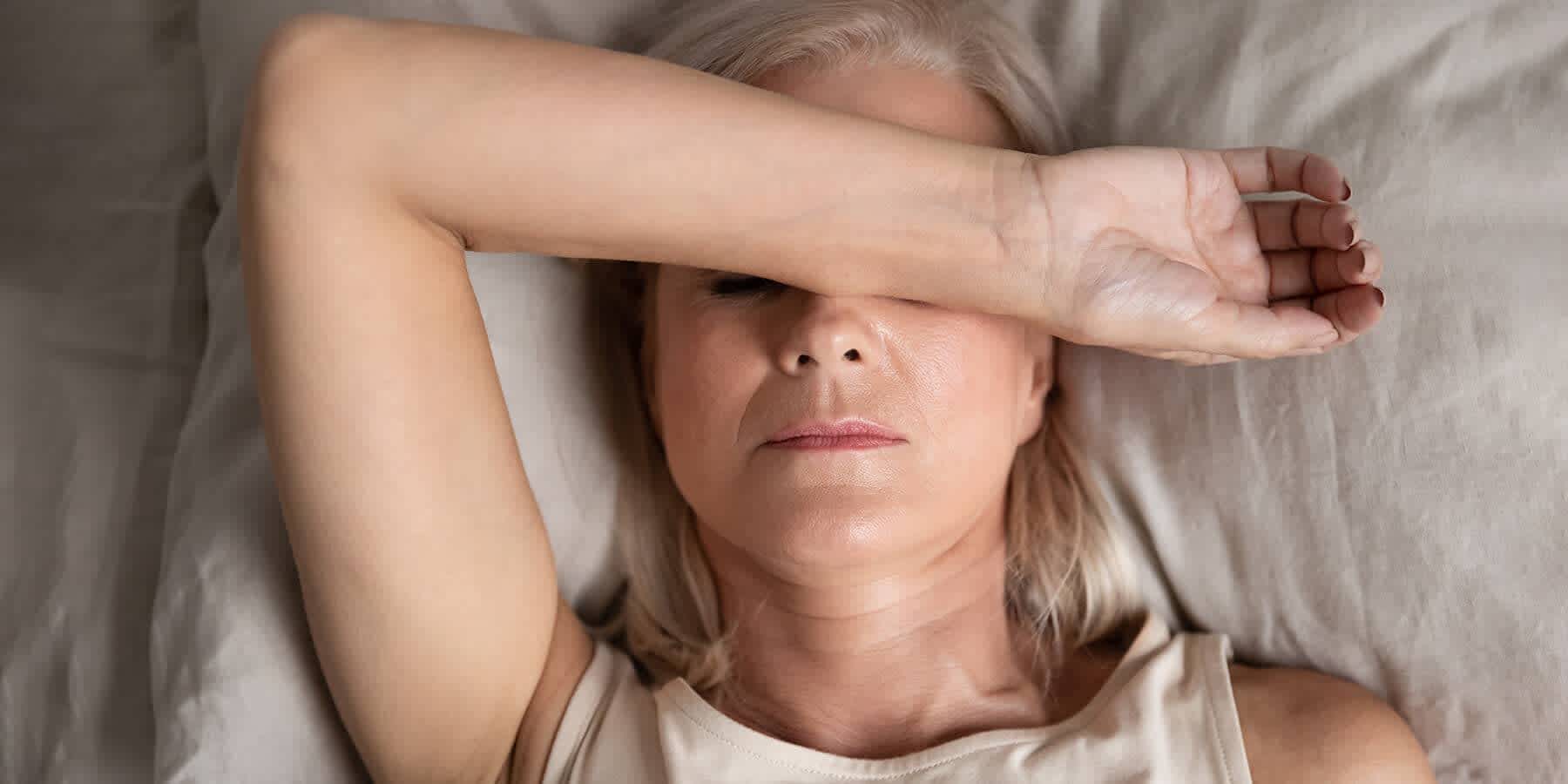
Causes of night sweats—and what you can do to address them
Medically reviewed by William Ross Perlman, PhD, CMPP on January 10, 2020. Written by Caitlin Boyd. To give you technically accurate, evidence-based information, content published on the Everlywell blog is reviewed by credentialed professionals with expertise in medical and bioscience fields.
Table of contents
- Common causes of night sweats
- Seeking medical care for night sweats
- Other remedies
- Common questions about night sweats
- Related content
Do you wake up in the middle of the night—and find yourself somewhat drenched in sweat? If so, you may be experiencing night sweats—an often uncomfortable symptom that can make it hard to relax and get a good night’s sleep.
While nighttime sweating isn’t always harmful to your health, it can be a sign of a health issue. Read on to learn about the common causes of night sweats, remedies, common questions, and more.
Common causes of night sweats
The night sweats women experience can be a sign of decreased estrogen levels. Estrogen is a vital hormone that controls many physical processes. But as you approach menopause, your body gradually produces less estrogen. You may notice new menopausal symptoms like severe hot flashes and excessive sweating. These signs of menopause are especially common in women ages 40-50.
Some women might also experience night sweats after giving birth. During pregnancy, your estrogen levels rise rapidly. Estrogen levels peak in your third trimester, then drop after delivery. If you recently had a baby, you may experience symptoms like hot flashes and night sweats due to hormonal fluctuations.
If the cause of increased sweating is linked to low estrogen levels, medication may ease your symptoms. But before your healthcare provider can prescribe medication, they may need to understand your estrogen levels. The Everlywell at-home Perimenopause Test and Postmenopause Test are good starting points for learning more about your body’s estrogen balance—and sharing your test results with your healthcare provider is easy with our secure, online results platform.
Night sweats can be a side effect of certain medications. Antidepressants, hormone medication, and diabetes treatments can sometimes cause night sweats. If you notice abnormally heavy perspiration after starting a new drug, notify your health care provider to learn what steps to take next.
Some people may experience night sweats after consuming caffeine, tobacco, or alcohol. In these cases, cutting back on smoking or drinking before bed may clear up your symptoms.
Seeking medical care for night sweats
If you're frustrated by excessive sweating at night, your healthcare provider can help determine the cause of your symptoms. They may recommend specialized tests to better understand the possible causes.
Once your provider identifies the cause, they may suggest a hormone treatment strategy. If you have low estrogen levels, for example, your provider may prescribe hormone replacement therapy (HRT), which uses synthetic hormones to boost your estrogen levels.
Estrogen replacement for hormonal imbalance can take many forms, including:
- Pills
- Skin patches
- Topical gels and creams
- Vaginal rings
Other remedies
Here are a few tips you can use that might help reduce the severity of night sweats:
- By changing your bedroom or sleeping arrangement, you can help lower your body temperature. Maintaining a lower body temperature can help control severe hot flashes and may allow you to sleep soundly.
- Keep your bedroom cool. Use light, breathable bedding and avoid heavy pajamas. If possible, consider turning on your air conditioning unit at night. You may also find it helpful to keep a fan in your bedroom.
- Dietary and certain lifestyle changes often relieve nighttime sweating. Limit your consumption of caffeine, tobacco, and alcohol. Avoid hot drinks or spicy foods before bed, as they can lead to increased sweating.
Common questions about night sweats
What are night sweats?
"Night sweats" is the medical term for excessive sweating at night. If you have night sweats, you may wake up often during the night—which can decrease your sleep quality—and you might perspire through your pajamas and on your bedding.
What causes night sweats?
Several medical conditions can cause night sweats. In women, night sweats are often caused by decreased estrogen levels—which can be due to the menopause transition or the body’s hormone fluctuations after giving birth.
What treatments are available?
If you have low estrogen levels, your provider may prescribe medications. If your night sweats are linked to another health condition, your provider can help find the right diagnosis. They may then explain the recommended next step to start patient treatment.
Related content
Why does my weight fluctuate? Weight fluctuation in women and what it means
What are perimenopause mood swings?
Heat intolerance: what it is, common causes, and more
References
1. Night sweats. Mayo Clinic. https://my.clevelandclinic.org/health/symptoms/16562-night-sweats. Accessed January 10, 2020.
2. Night Sweats and Women's Health: Possible Causes. Cleveland Clinic. https://my.clevelandclinic.org/health/symptoms/16562-night-sweats. Accessed January 10, 2020.
3. Menopause. Mayo Clinic. https://www.mayoclinic.org/diseases-conditions/menopause/symptoms-causes/syc-20353397. Accessed January 10, 2020.
4. How to relieve postpartum night sweats. Medical News Today. https://www.medicalnewstoday.com/articles/322589. Accessed January 10, 2020.
5. Why Am I Experiencing Night Sweats? Healthline. https://www.healthline.com/health/night-sweats. Accessed January 10, 2020.
6. Hormone Replacement Therapy. Medline Plus. https://medlineplus.gov/hormonereplacementtherapy.html. Accessed January 10, 2020.
7. Hormone Replacement Therapy for Menopause. WebMd. https://www.webmd.com/menopause/guide/menopause-hormone-therapy#1. Accessed January 10, 2020.
8. Managing postpartum night sweats. Medical News Today. https://www.medicalnewstoday.com/articles/322589#managing-night-sweats. Accessed January 10, 2020.